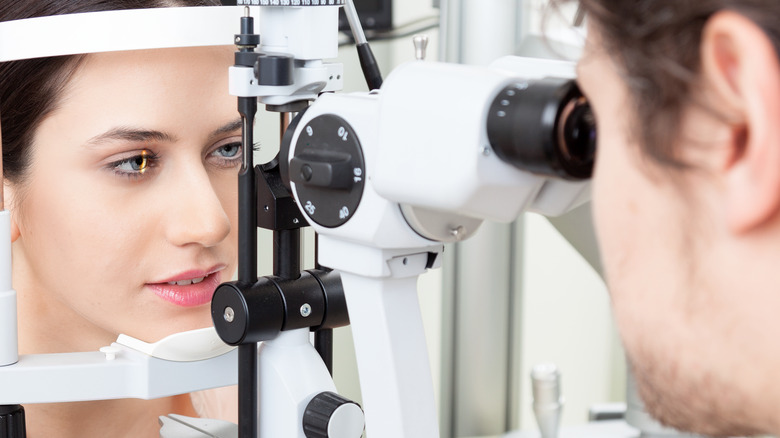How Often Should You Update Your Glasses Prescription?
Accurate eyeglass prescriptions are essential to help you see better. But, do you know how often you should see your eye doctor for a complete exam? Do you know what you should expect at your eye exam?
According to Aetna, a thorough eye exam can tell a lot about your overall health, not just your eye health. Eye doctors can detect glaucoma, macular degeneration, high blood pressure, high cholesterol, lupus, and diabetes. It's crucial to catch these health problems early so you can start getting treatment before it worsens.
The Mayo Clinic points out three different types of eye doctors — ophthalmologists, optometrists, and opticians. Ophthalmologists provide complete eye care, including examining your eyes, prescribing corrective lenses, diagnosing and treating eye diseases, and even performing eye surgery. Optometrists do many of these same things, except they do not treat more complicated eye problems and do not do eye surgeries. An optician can fill prescriptions for eyeglasses or contact lenses, and they'll help you find the right glasses, put them together, and fit them for you.
You'll need to see an ophthalmologist or optometrist to get a complete eye exam and an eyeglass prescription. Here's what to expect.
What to expect at your eye exam
Bring your eyeglasses or contacts to your eye exam. According to WebMD, you can expect your eye exam to last around 30 minutes, however it can go much longer depending on the extent of testing required. First, you'll be asked some questions about your medical history and vision. The standard tests include an external exam and pupil reactions, cover test, refraction test, slit-lamp exam using a biomicroscope, and retinal exam. If you're at risk for glaucoma, your doctor should do a quick test for this condition. That should conclude your eye exam. Before leaving, be sure you get your eyeglass prescription and new glasses if you need them.
Experts at All About Vision recommend getting a new eye exam if you're experiencing vision problems, headaches, blurry vision, or fatigue. These could be signs that you need a new prescription, new glasses, or both. In addition, if the glasses you have now are scratched or have bent frames, you'll need to replace them. These problems can cause eye strain and be harmful to your vision.
The American Academy of Ophthalmology recommends that if your eyes are in good health, you can schedule an eye exam once in your 20s, two times in your 30s, and again at age 40. However, if you have a family history of eye disease, high blood pressure, or diabetes, you should schedule an eye exam regardless of age. Your eye doctor will let you know how often you need to see them.


